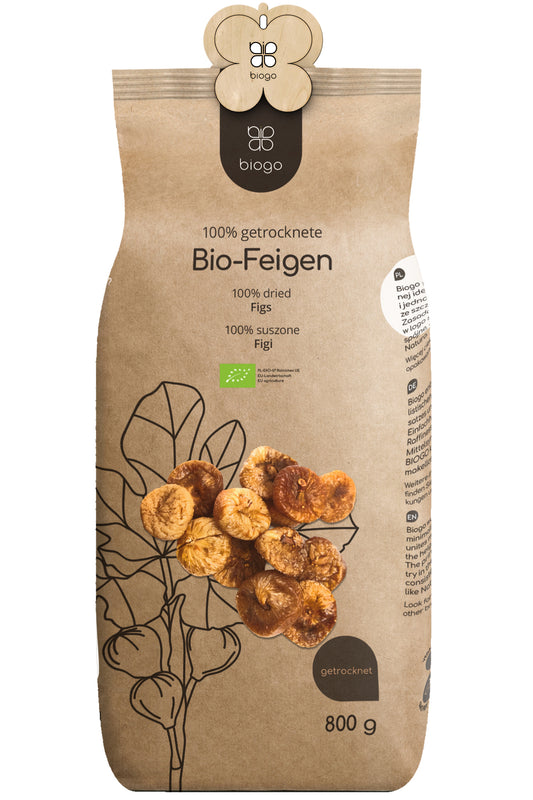Contents:
We've been hearing about the harmful effects of sugar on our bodies for years, yet we still consume it in excessive amounts. It's no wonder, since it's so ubiquitous. We add it to coffee and tea a few times a day. We find it not only in sweets, but also in yogurts, bread, ketchup, and highly processed foods. What is sugar and what effects does it have on our bodies?
What is sugar?
Sugar is a carbohydrate, i.e., the basic source of energy for the human body. The product of carbohydrate digestion, i.e., glucose, is necessary for the proper functioning of the central nervous system. Sugar, which is naturally present in fruits and vegetables, has been a part of the human diet almost since the dawn of humanity. These naturally occurring carbohydrates in fruits and vegetables are glucose and fructose. Sucrose, the edible sugar, is in the form of white, sweet, and easily soluble crystals. It is obtained from sugar cane or sugar beet—cane and beet sugar do not differ in structure and properties.
The influence of white sugar on the human body
Sugar is vital to our bodies. It's a source of energy, fuels our brains, and we need about 130 grams of glucose per day to function properly. Our bodies derive energy not only from sugar, but also from other chemical compounds that it can convert into glucose. According to the World Health Organization's recommendations, the daily sugar intake should not exceed 50 grams (12 teaspoons), and the diet should be based on complex carbohydrates, i.e., those found in whole grains, legumes, vegetables, and fruits. These types of sugar are broken down more slowly than simple sugars, and thanks to them, we feel full for much longer, and our body's sugar levels remain stable. Unlike simple sugars, they also don't cause a rapid rise in blood sugar and provide the body with vitamins and minerals. Simple sugars, or white sugar, are actually a source of empty calories, which lead to a rapid rise in blood sugar followed by a rapid fall. This is one of the reasons why it has gained a bad reputation. Excessive consumption contributes to:
- Risk of developing type II diabetes,
- Risk of cardiovascular disease,
- Occurrence of insulin resistance,
- Disorders of the endocrine system,
- become overweight or obese,
- Caries development,
- Development of skin diseases such as acne.
Healthier alternatives to white sugar
Today, we know of many sugar substitutes that are just as sweet, yet healthier and contain fewer empty calories. They are well-suited to the diets of people who want to eat healthily, diabetics, or those suffering from cardiovascular disease. Among the most popular are:
- Xylitol Birch sugar, extracted from birch bark, tastes and looks deceptively similar to regular table sugar, but has up to 40% fewer calories. It also has a low glycemic index and can therefore be used by diabetics. Xylitol also has antifungal and bactericidal properties, as well as prebiotic properties. It's perfect for coffee, tea, and baking (except for yeast dough, as it doesn't activate the yeast).
- Stevia – Made from the leaves of stevia, a plant native to South America. It is up to 300 times sweeter than sugar and contains no calories. It has health benefits, has antifungal and bactericidal properties, improves immune function, and lowers blood pressure. Consuming it does not affect blood sugar levels and is therefore safe for diabetics. Its taste is very sweet, but quite distinctive and somewhat different from the taste of sugar. It is available in granules, liquid, powder, and dried leaves.
- Erythritol – produced by the fermentation of glycerin. Although it looks like regular white sugar, it is less sweet. It contains only 20 kcal per 100 g, does not raise blood sugar levels, and has a glycemic index of zero, making it safe for diabetics. It has no special health benefits and is completely excreted from the body in the urine.
- Maple syrup – extracted from maple trees, Canadian maple syrup contains no preservatives, is sweet, delicious, and definitely healthier than regular sugar. It contains not just empty calories but numerous compounds that have a positive effect on our health. Among other things, it boosts immunity. However, it is quite high in calories and has a similar glycemic index to white sugar, which is why it is not recommended for diabetics.
- Tagatose – a sugar derived from lactose – is almost as sweet as sucrose and has significantly fewer calories – 150 per 100g – and a low glycemic index of 7.5. Therefore, it can also be consumed by diabetics.
In the interest of our health and well-being, we should limit our consumption of white sugar, which, especially when combined with highly processed foods rich in unhealthy fats, can contribute to the development of lifestyle diseases such as type 2 diabetes, atherosclerosis, and other cardiovascular diseases. This is especially true given that the selection of healthier substitutes is truly vast and readily available.
THE PUBLISHER'S CHOICE
Dried dates 1 kg BIOGO
- €4,21
€4,95- €4,21
- Unit price
- / per
Almonds 1 kg BIOGO
- €11,69
€13,75- €11,69
- Unit price
- / per
Peeled sunflower seeds 1 kg BIOGO
- €3,04
€3,57- €3,04
- Unit price
- / per
Dried organic mango 400 g BIOGO
- €10,99
- €10,99
- Unit price
- / per
Dried White Mulberries 500 g ORGANIC
- €5,84
€6,87- €5,84
- Unit price
- / per
Popcorn (corn kernels) organic 1 kg BIOGO
- €5,84
- €5,84
- Unit price
- / per
Organic Ground Turmeric 500 g BIOGO
- €5,92
- €5,92
- Unit price
- / per
Milk thistle seeds 1 kg BIOGO
- €3,99
- €3,99
- Unit price
- / per
Dried organic figs 800 g BIOGO
- €30,12
- €30,12
- Unit price
- / per
Bag #changezbiogo Cotton v.2
- €3,27
- €3,27
- Unit price
- / per






































































































































